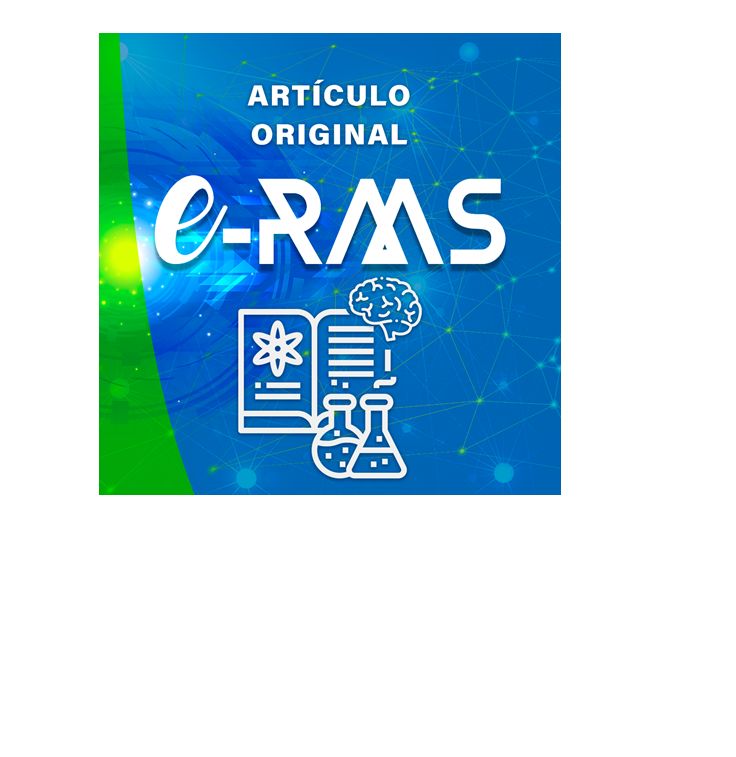Importance of traditional games for the development of emotions in infants
DOI:
https://doi.org/10.61286/e-rms.v3i.195Keywords:
Learning, strategies, digital tools, normalityAbstract
Innovative digital tools in education stand out for their excellence, since their use enhances the creation of new and important knowledge in different areas of education. The aim of the study is to describe the importance of digital tools (hereinafter HD) in the educational strategies of schoolchildren in the new normality. For this purpose, a systematic review of the information in the databases (BDD) Scopus and Scielo was carried out. The findings indicate that the unification of digital tools faces challenges such as the non-existence of spaces and equipment for the implementation of class sessions within schools, in the same way another challenge or dilemma is that there is fear of change or habit to the traditional and inequalities in the scope of technological resources due to different factors, which requires the development of sound educational strategies and appropriate investment to ensure that these tools reach all learners and optimize education environment in the effectiveness of the digital age. The conclusion is that it is of great importance to provide adequate training to educators in the inclusion and management of digital resources designed for their application in the academic environment; specifically, innovation in the consummation of operational strategies, socioemotional and development of thinking that creates opinions creatively through the investigation of different possible alternative solutions, which influence the improvement of performance in terms of learning of students
Downloads
References
Aguilar, F. (2020). Del aprendizaje en escenarios presenciales al aprendizaje virtual en tiempos de pandemia. Estudios Pedagógicos, 46(3), 213–229. http://dx.doi.org/10.4067/S0718-07052020000300213
Ardini, C., Belen, M., & Corzo, L. (2020). Herramientas digitales de comunicación en contexto COVID 19. El impacto en la relación estudiantes-instituciones educativas en Argentina. Revista ComHumanitas, 11(2). https://doi.org/10.31207/rch.v11i2.251
Argandoña, M., García, R., Ayón, E., & Zambrano, Y. (2020). Investigación e innovación educativa: Reto escolar por COVID-19 en el Ecuador. Episteme Koinonia, 3(5), 180–198. https://doi.org/10.35381/e.k.v3i5.726
Bedolla, J., Belloda, R., & Miranda, A. (2023). Prácticas digitales y sostenibilidad socioambiental en la educación básica de las Smart Cities. Revista de Educación a Distancia, 23(72). https://doi.org/10.6018/red.533831
Cano, E., & Halbaut, L. (2022). Herramientas digitales para la evaluación de competencias transversales en el Grado de Educación primaria en contextos de docencia híbrida. Revista Complutense de Educación, 34(3), 569–581. https://revistas.ucm.es/index.php/RCED/article/view/79694/4564456566187
Cruz, M., Pozo, M., Aushay, H., & Arias, A. (2019). Las Tecnologías de la Información y de la Comunicación (TIC) como forma investigativa interdisciplinaria con un enfoque intercultural para el proceso de formación estudiantil. Ciencia de la Información, 9(1), 44–59. https://doi.org/10.15517/eci.v1i1.33052
Dwiyanti, K., Putu, Y., & Candra, M. (2020). Preparación para el aprendizaje en línea de estudiantes de secundaria en Denpasar. Revista Indonesia de Educación Inglesa, 7(2), 172–188. https://doi.org/10.15408/ijee.v7i2.17773
Escriba, M. (2022). Desarrollo de competencias digitales en los docentes post pandemia. Revista Latinoamericana de Ciencias Sociales y Humanidades, 3(2), 817–825. https://doi.org/10.56712/latam.v3i2.151
García, D., Mena, S., Erazo, J., & Muñoz, G. (2020). NEO LMS enseñanza matemática: Uso de recursos digitales. Koinonía, 6(1), 793–814. http://dx.doi.org/10.35381/r.k.v5i1.810
García, J., & García, S. (2020). Uso de herramientas digitales para la docencia en España durante la pandemia por COVID-19. Revista Española de Educación Comparada, (38), 151–173. https://revistas.uned.es/index.php/REEC/article/view/27816/23113
González, R., Gastélum, G., Velducea, W., Bustos, J., & Esparza, S. (2021). Analysis of teaching experience in Physical Education classes during covid-19 confinement in Mexico. Retos, 42, 1–11. https://doi.org/10.47197/RETOS.V42I0.86242
Haleem, A., Javaid, M., Qadri, M., & Suman, R. (2022). Understanding the role of digital technologies in education: A review. Sustainable Operations and Computers, 3, 275–285. https://doi.org/10.1016/j.susoc.2022.05.004
Jaume, J., Perales, F., Negre, F., & Fontanet, G. (2019). El diseño web y material didáctico accesible en la enseñanza universitaria. RED. Revista de Educación a Distancia, 60. http://dx.doi.org/10.6018/red/60/06
Kruszewska, A., Nazaruk, S., & Szewczyk, K. (2020). Los docentes polacos de educación temprana frente al aprendizaje a distancia durante la pandemia de COVID-19: Las dificultades experimentadas y sugerencias para el futuro. Revista Educación, 3(13), 1–12. https://doi.org/10.1080/03004279.2020.1849346
Kundu, A., & Bej, T. (2021). Covid 19 response: An analysis of teachers’ perception on pedagogical successes and challenges of digital teaching practice during new normal. Education and Information Technologies, 26, 6879–6894. https://doi.org/10.1007/s10639-021-10503-5 (Retracted)
Mero, J. (2020). Herramientas digitales educativas y el aprendizaje significativo en los estudiantes. Dom. Cien., 7(1), 22–38. http://dx.doi.org/10.23857/dc.v7i1.1735
Moldavan, A., Edwards, C., & Murray, J. (2022). Design and pedagogical implications of a digital learning platform to promote well-being in teacher education. Teaching and Teacher Education, 115, 103734. https://doi.org/10.1016/j.tate.2022.10373
Orellana, C., Aquije, E., Zubiaur, M., Castillo, J., & Cárdenas, F. (2022). Uso de las herramientas digitales en los centros públicos de educación secundaria. Horizontes Revista de Investigación en Ciencias de la Educación, 6(23), 429–438. https://doi.org/10.33996/REVISTAHORIZONTES.V6I23.345
Page, M. J., McKenzie, J. E., Bossuyt, P. M., Boutron, I., Hoffmann, T. C., Mulrow, C. D., Shamseer, L., Tetzlaff, J. M., Akl, E. A., Brennan, S. E., Chou, R., Glanville, J., Grimshaw, J. M., Hróbjartsson, A., Lalu, M. M., Li, T., Loder, E. W., Mayo-Wilson, E., McDonald, R., McGuinness, L. A., … Moher, D. (2021). Declaración PRISMA 2020: Una guía actualizada para la publicación de revisiones sistemáticas. Revista Española de Cardiología, 74(9), 790–799.
Parsons, D., Inkila, M., & Lynch, J. (2019). Navigating learning worlds: Using digital tools to learn in physical and virtual spaces. Australasian Journal of Educational Technology, 35(4), 144–159. https://bit.ly/3MtSA3w
Pazmiño, M., Moreira, J., Hernández, E., & Cedeño, I. (2022). Herramientas digitales educativas utilizadas en el nivel medio y su importancia en el rendimiento académico. Revista Sinapsis, 2(21). (ISSN 1390–9770)
Quilia, J., Alfaro, J., & Rivero, M. (2023). Impacto de las TIC en la educación básica en América Latina. Revista Mendive, 21(3), e3291. http://scielo.sld.cu/pdf/men/v21n3/en_1815-7696-men-21-03-e3291.pdf
Revilla, D. (2020). Rendimiento académico y tecnología: evolución del debate en las últimas décadas. Cadernos de Pesquisa, 50(178), 1122–1137. https://www.scielo.br/j/cp/a/Pgm3fMYJg4G3qHqjTRhDJnd/?format=pdf&lang=es
Rico, D., Barreto, I., Mendoza, M., Pulido, P., & Duran, S. (2021). Políticas públicas para el afrontamiento adaptativo del COVID-19: Nueva normalidad en Colombia (2020). Análisis Político, 33(100), 92–117. https://doi.org/10.15446/anpol.v33n100.93363
Ruiz, J., Upegui, F., & Romero, R. (2023). Estudio sobre el uso de herramientas digitales a través del E-learning para el desarrollo de estrategias educativas. Revista Científica Retos de la Ciencia, 7(15), 1–15. http://portal.amelica.org/ameli/journal/564/5644301004/
Sandoval, C. (2020). La Educación en Tiempo del Covid-19 Herramientas TIC: El Nuevo Rol Docente en el Fortalecimiento del Proceso Enseñanza Aprendizaje de las Prácticas Educativa Innovadoras. Revista Tecnológica-Educativa Docentes 2.0, 9(2), 24–31. https://doi.org/10.37843/rted.v9i2.138
Santos, E., Valda, M., & Ribeiro, T. (2021). Cultura digital e recursos pedagógicos digitais: Um panorama da docência na covid-19. Práxis Educacional, 17(45), 8–32. https://doi.org/10.22481/praxisedu.v17i45.8309
Schiff, M., Zasiekina, L., Pat, R., & Benbenishty, R. (2021). Functional difficulties and COVID-related concerns among university students during the COVID-19 pandemic: A binational perspective. Journal of Community Health, 46(4), 844–853. https://doi.org/10.1007/s10900-020-00930-9
Suntásig, E., Pastas, W., Rodríguez, L., Vargas, E., & Pesantez, N. (2023). Retos Educativos ante la nueva normalidad del Covid-19 y el sujeto Cibernauta. Ciencia Latina Revista Científica Multidisciplinar, 7(2), 8565–8577. https://doi.org/10.37811/cl_rcm.v7i2.5297
Vaillant, D., Rodriguez, E., & Bentancor, G. (2020). Uso de plataformas y herramientas digitales para la Enseñanza de la Matemática. Ensaio: Avaliação e Políticas Públicas em Educação, 28(108), 718–740. https://doi.org/10.1590/S0104-40362020002802241

Published
How to Cite
Issue
Section
License
Copyright (c) 2025 Amanda Ramos Trujillo, Juan Carlos Cardenas Valverde

This work is licensed under a Creative Commons Attribution-NonCommercial-NoDerivatives 4.0 International License.
Las publicaciones en acceso abierto de e-RMS están protegidas por derechos reservados y se rigen por la Licencia Pública Creative Commons Attribution-NonCommercial-NoDerivatives 4.0 International (CC BY-NC-ND 4.0). Se permite el uso no comercial de este material, con atribuciones al autor. No se permiten derivados de esta versión.













